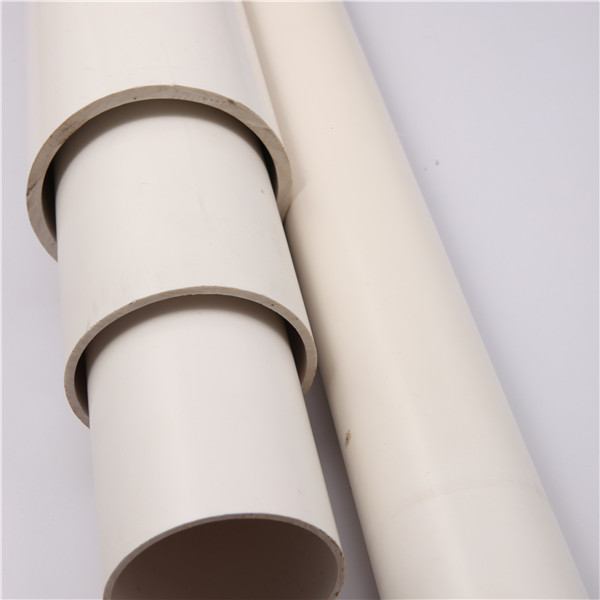Oct . 11, 2024 10:24 Back to list
Effective PVC Pipe Solutions for Efficient Farm Irrigation Systems and Practices
The Use of PVC Pipe for Farm Irrigation
Irrigation is a critical component of agriculture, enabling farmers to provide adequate water supply to their crops, thereby ensuring optimal growth and yields. Among the various materials available for irrigation systems, PVC (Polyvinyl Chloride) has emerged as a popular choice for many farmers. This article explores the benefits of using PVC pipes for farm irrigation, detailing their characteristics, availability, installation procedures, and long-term advantages.
Characteristics of PVC Pipes
PVC pipes are renowned for their excellent resistance to corrosion and chemicals, making them ideal for transporting water. Unlike metal pipes, which can rust and degrade over time, PVC doesn't react with most substances, ensuring a long lifespan with minimal maintenance. These pipes are also lightweight, making them easy to handle and transport. Producers can easily cut and fit them in various configurations to suit specific farm layouts.
Moreover, PVC pipes come in various diameters and pressure ratings, making them adaptable for different irrigation schemes. Whether you are dealing with a small garden or a vast agricultural field, there is a PVC solution available to meet your needs. Their durability means they can withstand various pressures, whether from groundwater sources or municipal supply.
Availability and Cost-Effectiveness
One of the major advantages of PVC pipe for farm irrigation is its widespread availability. Farmers can easily purchase PVC pipes at agricultural supply stores or specialized irrigation suppliers across the globe. The cost-effectiveness of PVC makes it accessible to a wide range of farmers. Compared to metal or other materials, PVC pipes typically have lower upfront costs. Although initial installation may require some investment, the long-term savings achieved through reduced maintenance and replacement costs render PVC a financially viable option for many.
Installation Process
Installing PVC pipes for farm irrigation is relatively simple, which can save both time and labor costs. The process typically involves cutting the pipe to the desired length and connecting it to fittings using solvent cement or heat fusion. Farmers can handle the installation themselves without needing specialized skills, allowing them to set up an efficient irrigation system quickly. Depending on the complexity of the layout, it could take a day or two to have a complete system ready to operate.
pvc pipe for farm irrigation

Additionally, the modular nature of PVC pipe systems allows for easy expansion and modification
. If a farmer wishes to change their irrigation strategy or expand their crop area, they can effortlessly add more pipes or reconfigure the existing setup.Environmental Considerations
Given the growing emphasis on sustainable farming practices, it’s worth mentioning that PVC pipes are also environmentally friendly. They are recyclable, and efforts are being made to recycle old PVC irrigation systems, further reducing waste. Moreover, well-implemented irrigation systems contribute to water conservation. By allowing precise control over water distribution, PVC pipes can help minimize water usage compared to traditional flooding techniques, which can lead to soil erosion and waterlogging.
Long-Term Advantages
The long-term advantages of using PVC pipes for irrigation are significant. Farmers can expect a lifespan of 50 years or more with proper installation and maintenance. This durability minimizes the need for frequent replacements, saving farmers significant amounts of money in the long run. Consistent water delivery leads to better crop yields and quality, contributing to improved food security in the region.
Furthermore, the adaptability of PVC allows for diverse applications beyond irrigation, such as drainage systems or even aquaculture. This versatility enables farmers to develop innovative practices that enhance productivity.
Conclusion
In conclusion, PVC pipes are an excellent choice for farm irrigation systems due to their durability, ease of installation, and cost-effectiveness. They cater to diverse agricultural needs while promoting environmentally responsible practices. As agriculture continues to evolve, PVC pipes will likely remain an essential component in the quest for efficient water management and enhanced crop production. With proper use and maintenance, PVC irrigation systems can lead to thriving farms and sustainable agricultural practices for years to come.
-
High-Quality PPR Pipes and Fittings Durable ERA PPR & PVC PPR Solutions
NewsJul.08,2025
-
Black HDPE Cutting Board - Durable, Non-Porous & Food Safe HDPE Plastic Cutting Board
NewsJul.08,2025
-
High-Quality CPVC Panel Durable HDPE & PVC Panels Supplier
NewsJul.08,2025
-
Double PE Welding Rod Supplier - High Strength, Durable & Versatile Welding Solutions
NewsJul.07,2025
-
High-Quality PVC-O Pipe Supplier Durable 75mm PVC Pipe & Connections Leading PVC Pipe Company
NewsJul.07,2025
-
HDPE Drainage Pipe Supplier – Durable & Corrosion-Resistant Solutions
NewsJul.06,2025

